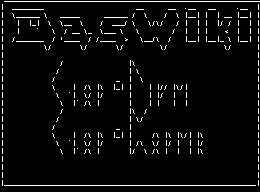- Das Wiki
- zsh.md
- zoneminder.md
- yubikey.md
- yasnippet.md
- xprofile.md
- xmonad.md
- wpa_supplicant.md
- wp3.md
- windows.md
Menu (Edit):
Link List (Edit):
# __ __ _ _ _
# \ \ / /_ _ _ __(_) __ _| |__ | | ___
# \ \ / / _` | '__| |/ _` | '_ \| |/ _ \
# \ V / (_| | | | | (_| | |_) | | __/
# \_/ \__,_|_| |_|\__,_|_.__/|_|\___|
#
# ____ _ _
# / ___| | ___ __ _ _ __ (_)_ __ __ _
# | | | |/ _ \/ _` | '_ \| | '_ \ / _` |
# | |___| | __/ (_| | | | | | | | | (_| |
# \____|_|\___|\__,_|_| |_|_|_| |_|\__, |
# |___/
Variable Cleaning
Cleaning variables in order to maintain a small footprint.
Almost under every circumstance, removal of previously declared variables is both a waste of resources and a waste of time. There are circumstances when this would be benefitial. For example, when the system running the code has extremely limited resources, or maintaining an identical footprint to initialization is required.
garbage collection
In these circumstances it is usually best to allow Python to manage the removal of these variables with it’s garbage collection class.
import gc
gc.collect()
del keyword
Python also provides the keyword del, which will disassociate a variable’s identifier with it’s meaning.
Note, this does not serve the same purpose as gc because the underlying data behind the identifier still
remains stored in memory.
my_pet = "dogs"
del my_pet
As noted, this does not delete “dogs”, but disassociates it. You can use gc.get_objects to generate a list
of objects tracked by the garbage collection tracker.
 Anoduck's Das Wiki
Anoduck's Das Wiki